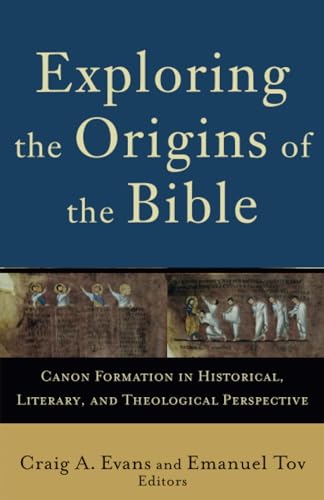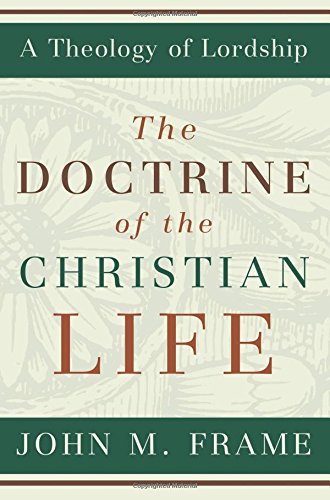Baptist Theology: A Four-Century Study
Written by James Leo Garrett Reviewed By Nathan A. FinnOver the past half century, James Leo Garrett has established himself as the dean of Baptist historical theologians. In the course of his distinguished career he has served on the faculties of Baylor University, The Southern Baptist Theological Seminary, and Southwestern Baptist Theological Seminary. He has written widely on such matters as Free Church ecclesiology, Baptist history and identity, church discipline, and the relationship between Southern Baptists and American evangelicalism. He is also the author of a significant two-volume systematic theology. These themes come together in Baptist Theology: A Four-Century Study, which is a comprehensive survey of Baptist historical theology. It is fitting that Garrett’s magnum opus appears in 2009, when Baptists celebrate the 400th anniversary of their movement.
Baptist Theology is divided into thirteen lengthy chapters organized in a basically chronological manner. The first three chapters explore Baptist theological roots and the origins of the English General (Arminian) and Particular (Calvinistic) Baptists, respectively. Chapter four addresses early American Baptists, and chapter five surveys advocates and opponents of the missionary awakening among Baptists in both North America and Britain during the late eighteenth and early nineteenth centuries. Chapters six and seven give significant attention to theological controversies such as Landmarkism, the Stone-Campbell movement, the Down Grade Controversy in Britain, and the Fundamentalist-Modernist controversies in North America.
Chapter eight is devoted to Baptist participants in the academic biblical theology movement, while chapter nine examines Southern Baptist thought in the twentieth century. The next three chapters are rather eclectic, focusing upon Baptist neo-evangelicals in the mid-twentieth century, progressive Baptists attempting to “re-envision” Baptist identity, “incursions” into Baptist theology such as dispensationalism and various types of leftward theological trends, and the influence of missiology and globalization on Baptist thought. The final chapter discusses ten “new voices” in Baptist theology since World War II.
There is much to commend about this book. Garrett helpfully argues that Baptists have theological roots in multiple movements, regardless of what one believes about Baptists’ historical roots. Generally speaking, he does a fine job of describing the diversity within theological sub-movements among Baptists. The sections that focus on more recent Baptist thinkers is very helpful and complements earlier studies of individual Baptist theologians like the two collections of essays edited by Timothy George and David Dockery (Baptist Theologians [1990]; Theologians of the Baptist Tradition [2001]). The sections on Baptist scholars in the two-thirds world are also a helpful contribution to Baptist historical theology. His discussion of the recent Inerrancy Controversy in the SBC is fairly evenhanded, a rarity among Baptist scholars, most of whom have a personal stake in one side or the other. Garrett also appropriately treats both pastor-theologians and academic theologians, both of whom have significantly shaped the Baptist tradition.
Garrett does offer the occasional questionable interpretation or oversimplification. He gives little attention to theological development between the first and second generations of English Particular Baptists, a topic of considerable scholarly debate in recent years. He also seems to virtually equate English hyper-Calvinism with High Calvinism, failing to recognize that not all of the latter moved to embrace the evangelistic hesitancy of the former. When discussing Southern Baptist Landmarkism, Garrett correctly notes the “high church” nature of the movement, but he argues that practices like a rejection of close communion and alien immersions are Landmark doctrines, even though those positions were common among American Baptists well over a century before Landmarkism.
The scope of Garrett’s study is impressive; there is simply no other work that contains this much information about Baptist historical theology. Garrett painstakingly summarizes virtually every confession of faith, parses nearly every variation in doctrine, and extensively interacts with an enormous amount of primary and secondary sources, including dozens of unpublished dissertations. At times Garrett is encyclopedic to a fault; one chapter contains almost 600 footnotes. There is also little effort to synthesize material and/or draw wider implications for Baptist history and thought.
Despite the comprehensive nature of Baptist Theology, there are several curious omissions. Garrett says little about Canadian Baptist thinkers and African American Baptist theologians. In his chapter on biblical theologians, he overlooks significant works like Paul House’s Old Testament Theology (1998) and Thomas Schreiner’s New Testament Theology (2008), both of whom wrote their treatises while on the faculty of Southern Seminary. While one could argue that Schreiner’s work is too recent for inclusion, there are other titles from 2008 that receive treatment. Also omitted is A Theology for the Church, a 2007 systematic theology text with contributions from numerous Southern Baptist theologians. There is little mention of either catechisms or hymnody, two crucial (though popular) sources of Baptist theology that have been recently highlighted by scholars such as Tom Nettles, Bill Leonard, and William Brackney.
Baptist Theology makes a significant contribution to the scholarly literature in the field of Baptist studies, particularly in North America. Though the book is perhaps a bit too cumbersome to be widely adopted as a classroom text, it is an invaluable resource for professors who teach Baptist history or courses in historical or systematic theology in a Baptist context. Garrett’s work is also the one volume that scholars in other traditions will want to add to their libraries if they wish to have a one-stop treatment of Baptist thought. Garrett’s study provides the perfect complement to Brackney’s more accessible, but far less comprehensive A Genetic History of Baptist Thought (2003).
Nathan A. Finn
Nathan A. Finn (PhD, Southeastern Baptist Theological Seminary) serves as provost and dean of the university faculty at North Greenville University. He is co-editor of the forthcoming volume Historical Theology for the Church (B&H Academic, 2021).
Other Articles in this Issue
We begin with a question of translation. Many translations place a period after the word “conviction” in 1 Thess 1:5: “in power and in the Holy Spirit and with full conviction...
The Inexhaustible Fountain of All Good Things: Union with Christ in Calvin on Ephesians
by Lee GatissJuly 10, 2009 was the 500th birthday of the acclaimed French Reformer John Calvin...
The name of Martin Luther is perpetually linked to the doctrine of justification by faith alone...
Of the many questions currently surrounding the discussion about justification, the relationship between justification and spiritual fruit merits attention...
Every year a few students ask me my thoughts about whether they should pursue doctoral studies and I respond with what has come to be known as ‘The Speech...







